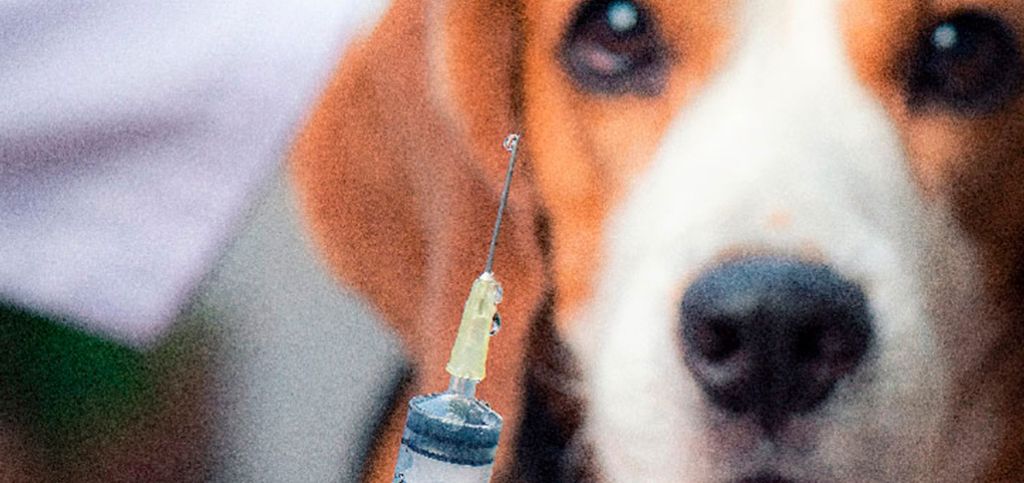Why are vaccinations so important for dogs?
Vaccines are produced from weak, or even dead, viruses and bacteria. The aim is to stimulate the immune system to make antibodies that will combat them, so that in the future, when one of these viruses enters the dog's body, he'll be able to fight it off.
Before any vaccines are administered it's crucial to make sure your dog is in good health. In fact, your vet will suggest de-worming and offer a check-up. Why? Because if his immune system is working on another problem, he'll have a hard time assimilating the vaccine.
Types of vaccination
There are two types of vaccination for dogs:
Core vaccinations
These protect against diseases that are either very serious, or very frequent such as:
- Parvovirus, which affects the intestine and the immune system, causing vomiting and diarrhoea.
- Distemper, which can destroy the intestine and the respiratory and nervous systems if not treated in time.
- Canine hepatitis, an easily contracted virus that affects the liver.
- Rabies, one of the most common diseases in the canine world.
Non-core vaccinations
These are not obligatory everywhere, but may be recommended depending on where you live. These are the most common:
- Leptospirosis. Es una enfermedad que se contagia por la orina y que afecta al agua. Sus síntomas son fiebre, problemas renales y hepáticos.
- Kennel cough. Although not serious, this is a very unpleasant respiratory disease. It’s a good idea to vaccinate if your dog lives with other dogs, or has a weak respiratory system.
- Leishmaniasis. This is caused by a mosquito bite and can even be fatal if not treated in time.
Vaccination schedule for dogs
Now that you’re familiar with the core vaccines, let’s take a look at this schedule so that you can protect your four-legged friend:
Puppies
- The polyvalent vaccine should be administered at 6-8 weeks. It should be repeated every 2-4 weeks up to the age of 16 weeks. This is because the antibodies the puppy receives from his mother could counteract the effectiveness of the vaccines. These antibodies don’t disappear until the puppy is 4-6 weeks old, and may even be present until he reaches the age of four months.
- A booster is recommended between 6-12 months. The vet will then suggest testing for antibodies to make sure that your dog is protected.
- The rabies vaccine is administered between three and twelve months.
- Kennel cough. Just one dose at between 6 and 8 weeks.
- Leishmaniasis. This is only administered in areas where the parasite exists, and always after the age of 6 months.
Adult dogs
With regard to adult dogs, there was an important change in 2016. Whereas previously the recommendation had been to re-vaccinate your dog each year, it was shown that the antibodies for many vaccines are effective for a period of three years. For this reason WSAVA (the World Small Animal Veterinary Association) suggests that core vaccines should be re-administered every three years.
- One of these is the trivalent vaccine that protects against parvovirus, distemper and infectious hepatitis.
- In the case of the rabies vaccine, it will depend on where you live. In Madrid or the Canary Islands an annual vaccination is obligatory, while in Valencia, for example, you can choose between every year, or every three years.
- Leptospirosis, kennel cough and leishmaniasis, vaccines are administered yearly, but only where necessary due to circumstances or location.
So, as we’ve seen, there may be different rules in different places, but the core vaccines are obligatory for all dogs. For other vaccines, it’s a question of where you live, and the specific conditions where your dog lives. To make sure that you don’t miss any of them, talk to your vet and s/he’ll help you to make a specific vaccination plan for your particular dog.
 Copy link
Copy link
 Publish on Facebook
Publish on Facebook
 Publish on Twitter
Publish on Twitter
 Publish on WhatsApp
Publish on WhatsApp
